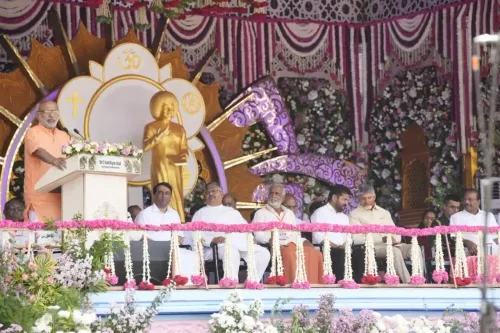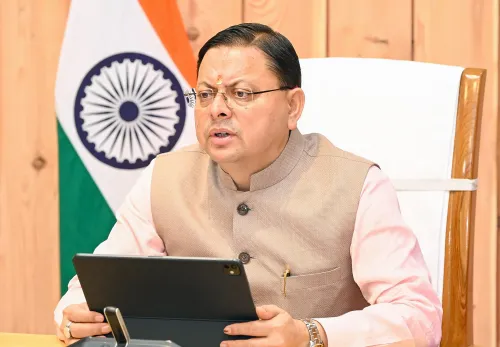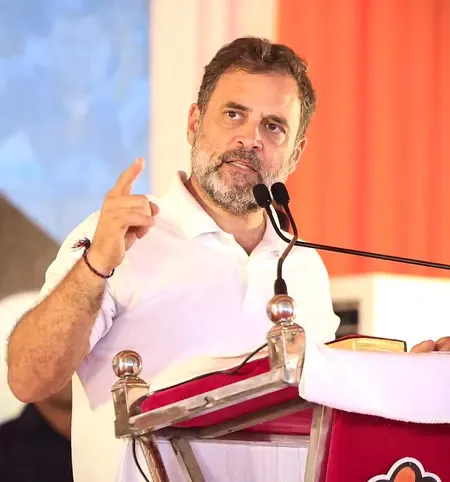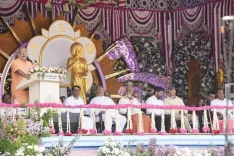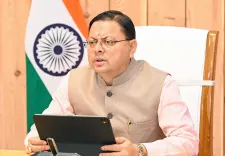Must Justice Always Reach People's Doorsteps?
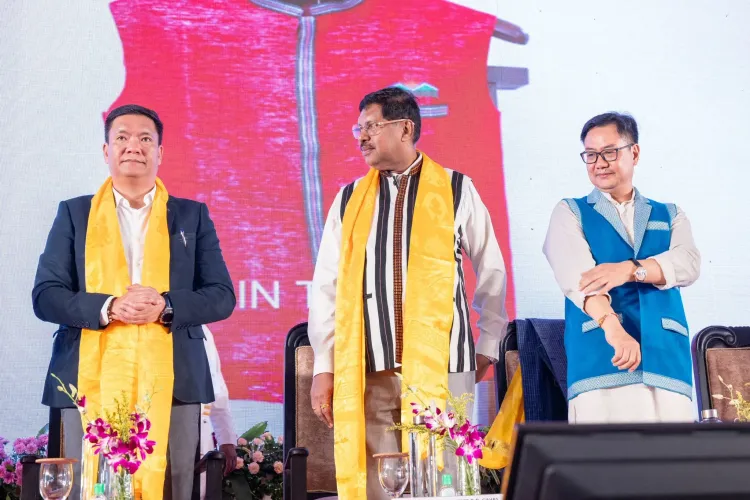
Synopsis
Key Takeaways
- Judiciary, legislature, and executive committed to serving the people.
- Decentralized justice emphasized by CJI Gavai.
- Gauhati High Court's Itanagar bench enhances access to justice.
- Constitution is pivotal for unity and cultural preservation.
- Arunachal Pradesh's rich diversity highlighted as a strength.
Itanagar, Aug 10 (NationPress) Chief Justice of India (CJI) B.R. Gavai emphasized on Sunday that the judiciary, legislature, and executive are dedicated to serving the public and ensuring swift justice with minimal costs and efforts.
While inaugurating the newly-built court complex of the Gauhati High Court's Itanagar permanent bench, the CJI reiterated his advocacy for decentralized justice, ensuring it reaches the doorsteps of those in need.
"The primary aim of the judiciary, legislature, and executive is to support the populace. Our existence is to deliver swift and fair justice to all," CJI Gavai stated, commending previous Chief Justices of the Gauhati High Court for their efforts in making justice more accessible.
He noted that despite numerous challenges faced in the 75 years since Independence, the nation has remained resilient, united, and is progressing towards becoming a developed nation.
Pointing out Arunachal Pradesh’s rich diversity, CJI Gavai remarked that the Northeastern state comprises 26 major tribes and over 100 sub-tribes.
The government has undertaken extensive measures to preserve, protect, and promote the unique cultures and customs of each tribe, he explained.
He asserted that the nation's progress and the safeguarding of cultural traditions can proceed together, thereby further strengthening the country. He added that the Constitution also emphasizes the importance of preserving the culture of every community.
Expressing his admiration for the vibrant tribal culture of the Northeast, CJI Gavai recounted a touching moment during a recent trip to Manipur when a local woman welcomed him home, reinforcing the sentiment of unity among Indians.
The Chief Justice highlighted that the Northeast is a crucial part of India, and shared that the Constitution provides special protections for the tribal communities in the region.
Referencing B.R. Ambedkar, CJI Gavai mentioned that Ambedkar championed India's unity, famously stating, 'India first and India last'.
Ambedkar reminded us that the Constitution would maintain India's strength and unity in both peace and conflict, a reality experienced even after 75 years, CJI Gavai remarked.
He stated, "Every religion has its own religious texts, but for all Indians, the Constitution stands as the supreme scripture. Our primary allegiance must be to the Constitution, and everyone should read it."
During the event, Arunachal Pradesh Chief Minister Pema Khandu noted that the inauguration of the Gauhati High Court's Itanagar Permanent Bench building represents a significant milestone in enhancing the state's justice delivery system, promising quicker and more efficient access to justice.
"Until 2016, Arunachal Pradesh had just two courts, but now it boasts 33 operational district and session courts. The state Cabinet has recently approved the establishment of eight additional courts and created 463 new positions for district-level judiciary," the Chief Minister added.
On social media, CM Khandu celebrated the occasion, stating: "Today marks a historic milestone as we dedicate to the people of Arunachal Pradesh the new building of the Gauhati High Court, Itanagar Permanent Bench, a beacon of hope and justice accessibility."
He expressed that the residents of Arunachal Pradesh have long aspired to have their own High Court to improve their access to justice.
"The foundation stone for this new building was laid on August 12, 2018. Despite delays caused by the Covid-19 pandemic and the transition to temporary locations, construction formally commenced on September 3, 2021. Today, we proudly unveil a state-of-the-art facility exceeding 19,000 square meters, completed in under four years with an investment of nearly Rs 250 crore," CM Khandu stated.
Addressing the assembly, Union Minister of Parliamentary Affairs and Minority Affairs, Kiren Rijiju, advocated for enhanced judicial infrastructure, particularly in the lower judiciary, to ensure swift, user-friendly justice for everyone.
Highlighting reforms by the Union government under Prime Minister Narendra Modi, Union Minister Rijiju noted that over 1,500 outdated laws from the British era have been repealed as they caused unnecessary complications for the public and governmental operations.
Judges from the Supreme Court, including Justice Ujjal Bhuyan, Justice Sandeep Mehta, Justice N. Kotiswar Singh, Justice Vijay Bishnoi, Union Minister of State for Law and Justice and Parliamentary Affairs, Arjun Ram Meghwal, and Chief Justice of Gauhati High Court Justice Ashutosh Kumar, among others, were present at the inauguration.


